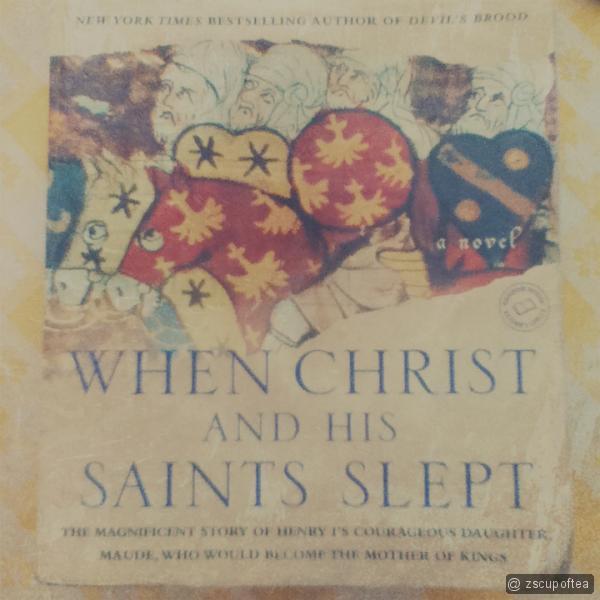[This is a review of a sequel. Read the review of the first book, When Christ and His Saints Slept, here.]
Soon upon finishing When Christ and His Saints Slept, I began the sequel Time and Chance. Whereas the first book mostly dealt with Empress Maud and King Stephen’s war for the English throne, Time and Chance is about King Henry II’s reign and his marriage to Eleanor of Aquitaine.
Henry’s ascension to the throne did not signify peace for England. He campaigned to claim Welsh territories and, most notably, would make his chancellor Thomas Becket archbishop and that would cause a long and bitter battle between them for seven years and that would end in tragedy. Aside from his marriage to Eleanor, it is his public argument with Becket that he is perhaps best well-known, and remembered, for.
Although he would not be crowned as King of France, through his marriage to Eleanor, Henry effectively ruled over both England and France: this would become known as the Angevin Empire.
Against Eleanor and his mother Maude’s advice, Henry appoints his friend and chancellor Thomas Becket as Archbishop of Canterbury, although he was never a priest. By making Becket archbishop, he believes he can exert his control and reassert his rights over the Church of England. In a dramatic turn of the tables, however, Becket rejects his old lifestyle and zealously throws himself into his new life, becoming a staunch supporter and defender of the church to the point that a bitter resentment and antagonism grows between the two former friends.
Ranulf’s (from WCAHSS) role is expanded in Time and Chance, as he experiences a personal conflict as his loyalties to England and Wales tied as he acts as advisor to Henry as his nephew prepares to conquer Wales, in an attempt to expand his empire’s territories. Despite the advantage of having greater numbers (English as well as Welsh, enemies of the Welsh king Owain ap Gwynedd*), Henry’s attempts are generally futile as the English are unfamiliar with Wales’ harsh landscape and they are ambushed by the Welsh; in one of these ambushes, Henry nearly loses his own life. Seemingly fighting a losing battle, as a last resort to suppress the Welsh Henry orders the Welsh hostages to be taken to Shrewsbury, where they are mutilated. Two of the hostages being Owain’s sons. Within the story, Ranulf leaves the English camp for Wales, enraged by this decision; neither he or Henry will have communication for thirteen years.
Wherever he goes, it is a battlefield for Henry. While his and Eleanor’s union began as a passionate affair, with mutual attraction, their relationship is put under strain as Henry is kept away from home – and from Eleanor – for longer more than the last, with his political campaigns and his public argument with Becket. This also keeps him away from his children, who, as they grow up, come to know their father as well as a complete stranger.
Continue reading →
